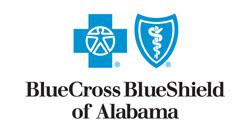BIRMINGHAM - In a continued effort to help battle the growing opioid epidemic in Alabama, Blue Cross and Blue Shield of Alabama is launching a new opioid management strategy, effective April 1. This is in response to concerns for our members’ care and safety.
Blue Cross always encourages its members to consult their doctors about any treatments or prescription drugs they may need, and the company relies on physicians’ expertise to know what is best for their patients. Despite this and existing strategies promoting appropriate opioid use, Alabama ranked first in the nation in number of opioid scripts per capita in 2015. The recent Blue Cross and Blue Shield Association’s Health of America report on the opioid epidemic showed over 26 percent of its commercial members in Alabama filled at least one opioid prescription in 2015, and 16 per 1,000 members were diagnosed with opioid use disorder. The Centers for Disease Control and Prevention reports that between 2000 and 2015, more than half a million people across the U.S. died from drug overdoses, and 91 Americans die each day from an opioid overdose.
In 2016, the CDC called for change in prescribing practices in their Guideline for Prescribing Opioids for Chronic Pain. Blue Cross and Blue Shield of Alabama, leaning on the published guidance from the CDC, is implementing changes to its opioid management strategy. Members with cancer and those who are currently receiving opioids will not be subject to the following changes. Effective April 1, the following requirements to help decrease the misuse of opioid medications will be implemented:
• Members will be limited to a seven-day supply for the first time they fill a short-acting opioid medication. If an initial fill is needed for a supply of more than seven days, members may ask their doctor to submit a one-time Prior Authorization or PA. Short-acting opioid medications include Lortab, Vicodin, Percocet, etc.
• Members will be required to obtain a PA for all first-time prescriptions for long-acting opioid medications. These medications include OxyContin and MS Contin.
• Naloxone, the antidote for an opioid overdose, will be available to most members at the generic copay. These include the pre-filled syringes and nasal spray.
• Evzio, an auto-injector antidote, will no longer be covered because it is a high-cost drug with the same active chemical ingredient as naloxone.
Blue Cross will continue to develop and adopt actionable policies and procedures that ensure safe prescribing of opioid medication. Blue Cross remains committed to providing appropriate and affordable access to treatment for opioid use disorder, including drugs like naloxone. In addition, we will continue to collaborate with Alabama physicians to help curb the growing epidemic of opioid misuse by offering support, resources, and educational tools to network providers.
See complete story in the Northwest Alabamian.
Subscribe now!

